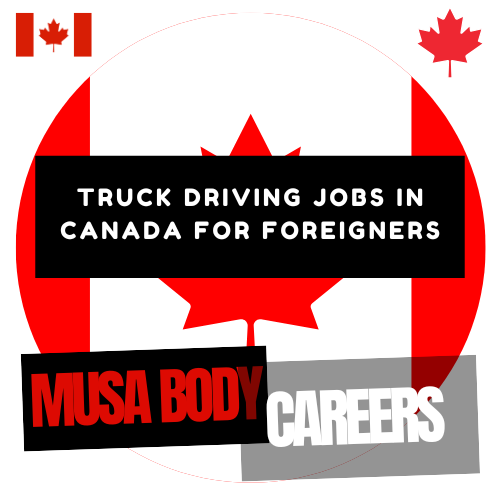Introduction
Embarking on a journey to secure employment in Europe without formal education presents both challenges and promising opportunities. The traditional emphasis on formal qualifications is gradually giving way to a skills-based approach, where experience and practical abilities are highly valued. In today’s competitive job market, employers are increasingly recognizing the importance of a candidate’s skill set and real-world experience over traditional academic credentials.
One of the key aspects to successfully navigating this landscape is the ability to showcase relevant skills and experience. Whether acquired through internships, volunteer work, or self-taught ventures, these practical experiences can significantly enhance your employability. Additionally, networking plays a crucial role. Building connections within your desired industry can open doors to opportunities that might not be advertised through conventional channels.
Europe, with its diverse economy, offers a wealth of job opportunities across various sectors. From technology hubs in Germany and Ireland to creative industries in France and Italy, the continent provides a fertile ground for career development. Countries like the Netherlands and Sweden are particularly known for their inclusive and flexible work environments, often valuing innovative thinking and practical skills over formal education.
The potential for career growth is substantial, with many European companies offering robust training programs and career advancement opportunities. As the job market continues to evolve, there is a growing appreciation for diverse educational backgrounds and unique skill sets. This shift not only benefits job seekers without formal education but also enriches the workplace with varied perspectives and innovative solutions.
Identifying Your Skills and Strengths
Embarking on a job search in Europe without formal education necessitates a thorough understanding of your skills and strengths. Self-assessment plays a pivotal role in identifying the marketable attributes you possess, which can be leveraged to appeal to potential employers. Key skills such as communication, problem-solving, and adaptability are highly valued across various industries. These competencies often outweigh formal qualifications, particularly in roles that prioritize practical abilities and experience.
To begin with, creating a detailed inventory of your skills is essential. Start by reflecting on your past experiences, including volunteer work, internships, freelance projects, or any other activities that required specific skills. Compile a list of both hard and soft skills. Hard skills might include technical proficiencies, foreign language capabilities, or industry-specific knowledge. Soft skills, on the other hand, encompass communication, teamwork, leadership, and problem-solving abilities.
Once you have a comprehensive skills inventory, the next step is to align these skills with job requirements in Europe. Research job postings in your desired field and take note of the skills and qualifications commonly sought by employers. This will help you identify which of your skills are most relevant and where there might be gaps that you can address. For instance, if you frequently encounter job listings that emphasize proficiency in a particular software, consider taking a course or seeking hands-on experience to bolster that skill.
Moreover, understanding the cultural nuances and expectations of the European job market can enhance your job search strategy. Employers in Europe often value adaptability and the ability to work in diverse, multicultural environments. Highlight instances where you have demonstrated flexibility and cultural competence in your previous roles. By doing so, you can present yourself as a well-rounded candidate equipped to thrive in various settings.
In summary, identifying your skills and strengths through self-assessment is a critical step in securing employment in Europe without formal education. By creating a robust skills inventory and aligning your competencies with job requirements, you can effectively market yourself to potential employers, thus enhancing your chances of success in the European job market.
Building a Strong Resume and Cover Letter
When applying for jobs in Europe without formal education, crafting a compelling resume and cover letter is essential. These documents are your first opportunity to make a positive impression on potential employers, and they need to effectively showcase your skills, experiences, and potential. Start by ensuring your resume is well-organized and easy to read. Use a clean, professional format with clear headings and bullet points to highlight key information.
Your resume should begin with a strong professional summary that provides a snapshot of your qualifications and career aspirations. Focus on your most relevant skills and experiences, particularly those that align with the job you are applying for. In the absence of formal education, emphasize practical skills, certifications, and real-world experiences that demonstrate your capabilities. Use action verbs such as “managed,” “developed,” “coordinated,” and “implemented” to describe your achievements and responsibilities.
Next, list your work experience in reverse chronological order, starting with your most recent position. For each job, include the job title, company name, location, and dates of employment. Use bullet points to describe your responsibilities and accomplishments, focusing on quantifiable results where possible. For example, instead of saying “responsible for sales,” say “increased sales by 20% over six months through targeted marketing strategies.”
In addition to work experience, include a section for skills. Highlight both hard skills (such as proficiency in specific software or languages) and soft skills (such as communication, teamwork, and problem-solving). Tailor this section to the job description, ensuring you match the skills the employer is seeking.
Your cover letter should be concise and tailored to the specific job and company. Begin with a professional greeting, followed by an introduction that states the position you are applying for and a brief overview of your qualifications. Use the body of the letter to elaborate on your most relevant experiences and skills, explaining how they make you a strong candidate for the role. Conclude with a polite closing, expressing your enthusiasm for the opportunity and your availability for an interview.
By carefully crafting your resume and cover letter to highlight your unique strengths and experiences, you can effectively demonstrate your potential to European employers, even without formal education.
Leveraging Online Job Portals and Social Media
In today’s digital age, online job portals and social media platforms have become indispensable tools for job seekers, especially those without formal education. These platforms offer a plethora of opportunities to find job openings, connect with potential employers, and network with industry professionals across Europe.
Popular job search websites such as Indeed, Monster, and Glassdoor provide a comprehensive list of job vacancies tailored to various industries and skill levels. Moreover, region-specific portals like EURES (European Employment Services) and EuroJobs focus explicitly on the European job market, making it easier to filter opportunities by country and sector.
Professional networking sites, particularly LinkedIn, are crucial for building your professional brand and connecting with decision-makers. To optimize your LinkedIn profile, ensure it is complete and up-to-date. Use a professional headshot, craft a compelling headline, and write a detailed but concise summary highlighting your skills and experiences. Recommendations and endorsements from colleagues can further enhance your profile, making it more attractive to potential employers.
Social media platforms like Twitter and Facebook can also be valuable in your job search. Follow industry leaders, companies, and job boards to stay updated on new job postings and industry trends. Participate in relevant discussions and join professional groups to expand your network. Sharing insightful content can help establish your expertise and increase visibility among potential employers.
When connecting with potential employers and industry professionals, personalization is key. Tailor your messages to reflect genuine interest in their work and explain how your skills can add value to their team. Building meaningful connections can lead to job referrals and insider information about unadvertised positions.
In conclusion, leveraging online job portals and social media platforms effectively can significantly enhance your job search in Europe. By optimizing your profiles and actively engaging with the professional community, you can uncover opportunities and build a network that supports your career aspirations.
Networking and Building Professional Connections
Networking plays a crucial role in securing job opportunities in Europe, especially for those without formal education. Establishing and maintaining professional connections can provide access to unadvertised job openings, industry insights, and valuable recommendations. One effective strategy for networking is to attend industry events such as conferences, seminars, and workshops. These gatherings offer the chance to meet professionals in your field, exchange ideas, and form connections that could lead to job opportunities.
Joining professional organizations is another beneficial approach. Many industries have associations or societies that welcome members from various backgrounds. Becoming an active member of these organizations can enhance your visibility within the community and open doors to networking opportunities. Additionally, participating in online forums and social media groups related to your industry can help you connect with professionals across Europe. Engaging in discussions, sharing your knowledge, and seeking advice can build your reputation and expand your network.
Informational interviews are a particularly valuable tool for building professional connections. These are informal conversations with industry professionals where you seek advice and insights rather than a job. To approach an informational interview, reach out to individuals in your desired field through email or professional networking sites like LinkedIn. Be polite and concise, explaining your interest in their career path and requesting a short meeting to learn more about their experiences. Most professionals appreciate the opportunity to share their knowledge and can provide guidance that may be pivotal in your job search.
Maintaining these connections is equally important. Follow up with new contacts after meeting them, express appreciation for their time, and update them on your progress. By nurturing these relationships, you demonstrate your commitment and reliability, qualities that can be highly regarded when job opportunities arise. Through strategic networking and building professional connections, you can significantly enhance your chances of landing a job in Europe, even without formal education.
Gaining Relevant Experience and Skills
Securing a job in Europe without formal education necessitates the acquisition of relevant experience and skills. This can be achieved through a variety of alternative avenues, each offering unique advantages. One of the most practical methods is to engage in internships. Internships provide on-the-job training, allowing individuals to gain firsthand experience in their chosen field. Companies often value the practical knowledge and professional network that interns develop during their tenure.
Volunteer work is another effective strategy for building a strong skill set. Volunteering not only enhances one’s resume but also demonstrates a commitment to community and personal development. Many non-governmental organizations (NGOs) and non-profits offer volunteer opportunities that can help individuals acquire skills pertinent to various industries, such as project management, event planning, and digital marketing.
Freelancing serves as a versatile option for gaining practical experience. By taking on freelance projects, individuals can build a portfolio that showcases their abilities to potential employers. Websites like Upwork and Fiverr connect freelancers with clients in need of services ranging from graphic design to software development, providing a platform to hone and display one’s talents.
Online courses have become increasingly popular as a means to gain new skills and earn certifications. Platforms like Coursera, Udemy, and LinkedIn Learning offer a wide array of courses spanning multiple disciplines. These courses often come with certifications that can be added to a resume, demonstrating proficiency in specific areas. For instance, completing a course in data analysis or digital marketing can significantly boost employability.
In addition to these options, coding bootcamps and trade schools offer intensive training programs that equip individuals with in-demand skills in a relatively short period. Such programs are particularly valuable in sectors like technology and trades, where practical skills often outweigh formal education.
By leveraging these opportunities, individuals can effectively build a robust skill set that aligns with the demands of the European job market, thereby enhancing their chances of securing employment.
Understanding Work Visa and Permit Requirements
Securing a job in Europe without formal education necessitates understanding the intricacies of work visa and permit requirements, which vary significantly across different countries. Each nation within Europe has its own set of regulations and procedures, so it is crucial to research specific requirements for the country you are interested in.
Generally, the process of applying for a work visa involves several key steps. Firstly, you need to obtain a job offer from an employer willing to sponsor your visa application. This is a critical step, as most European countries require proof of employment before granting a work visa. Once you have secured a job offer, you will need to submit a visa application to the relevant immigration authorities in the country where you intend to work.
The documentation needed for a work visa application typically includes a valid passport, a completed visa application form, proof of employment (such as a job offer letter or employment contract), and proof of accommodation. Additionally, you may be required to provide evidence of financial stability, health insurance, and a clean criminal record. Some countries might also necessitate a medical examination.
For non-educated job seekers, the requirements can be more stringent. Some countries have specific visa categories for skilled workers, which might necessitate demonstrating relevant work experience or vocational training. It is advisable to seek employment in sectors that have a high demand for labor, such as agriculture, hospitality, or construction, as these sectors are often more lenient towards non-educated workers.
To navigate the application process, it is beneficial to consult official government resources. Websites like the European Commission’s Immigration Portal and national immigration websites provide detailed information on visa requirements and application procedures. Utilizing these resources will help ensure that you meet all necessary criteria and submit a complete and accurate application.
Understanding and fulfilling work visa and permit requirements is a crucial step in your journey to securing employment in Europe. By thoroughly researching and preparing your application, you can enhance your chances of successfully obtaining a work visa and starting your career abroad.
Preparing for Interviews and Job Assessments
Securing a job in Europe without formal education necessitates exceptional preparation for interviews and job assessments. A significant aspect of this preparation involves understanding the common interview questions and formulating effective responses. Employers frequently inquire about a candidate’s practical experience, problem-solving abilities, and adaptability. Questions might include, “Can you describe a challenging project you’ve worked on?” or “How do you handle tight deadlines?” To answer these effectively, focus on showcasing your hands-on experience and the skills you have honed through real-world applications.
When addressing your lack of formal education, steer the conversation towards your competencies and achievements. Highlight any relevant certifications, vocational training, or self-taught skills. Concrete examples, such as projects you have completed or successes in previous roles, can significantly bolster your credibility. Articulating how your unique background provides a fresh perspective or an innovative approach to problem-solving can also be advantageous.
Confidence is crucial during interviews. Presenting your skills and experiences assertively can compensate for the absence of formal qualifications. Practice mock interviews with friends or mentors, focusing on delivering your responses clearly and confidently. Body language is equally important; maintain eye contact, offer a firm handshake, and sit upright to convey professionalism.
Furthermore, be aware of cultural nuances in the interview process across different European countries. For instance, interviews in Germany may be more formal and detail-oriented, emphasizing precision and efficiency. Conversely, in countries like Spain or Italy, personal rapport and enthusiasm might play a more significant role. Researching these cultural differences can help you tailor your approach to align with the expectations of the specific country where you are seeking employment.
In conclusion, thorough preparation, a strong focus on practical experiences, and an understanding of cultural subtleties can greatly enhance your performance in job interviews and assessments, paving the way to securing a job in Europe without formal education.
Conclusion and Next Steps
Securing employment in Europe without formal education is indeed a challenging, yet achievable, goal. As we have explored, there are multiple pathways to success that do not necessarily require academic credentials. Instead, they emphasize the importance of practical skills, experience, and a proactive approach to job hunting. Key takeaways include the necessity of building a strong network, tailoring your CV to highlight relevant skills and experiences, and actively seeking opportunities that align with your strengths and interests.
Persistence is a critical factor in this journey. The job market can be competitive, but maintaining a determined and resilient mindset will significantly enhance your chances of success. Continuous learning is equally important. Engage in online courses, attend workshops, and seek out internships or volunteer opportunities to build your skill set. These experiences not only make you more attractive to potential employers but also provide invaluable personal and professional growth.
Leveraging available resources can make a substantial difference in your job search. Career counseling services can offer personalized guidance and support, helping you to identify suitable job opportunities and prepare for interviews. Job search workshops can equip you with essential tools and techniques, such as effective resume writing and job application strategies. Online forums and professional networks provide platforms for exchanging information, advice, and job leads with others in similar situations.
Here is a list of additional resources to support your job search in Europe:
- Career Counseling Services
- Job Search Workshops
- Online Professional Networks
- Industry-Specific Job Boards
- Local Business Networking Events
By taking proactive steps and utilizing these resources, you will be well-equipped to navigate the European job market. Remember, the path to employment without formal education is paved with persistence, continuous personal development, and strategic use of the resources at your disposal. Stay committed to your goals, and success will follow.




















for real musabody how can i make it to get a job